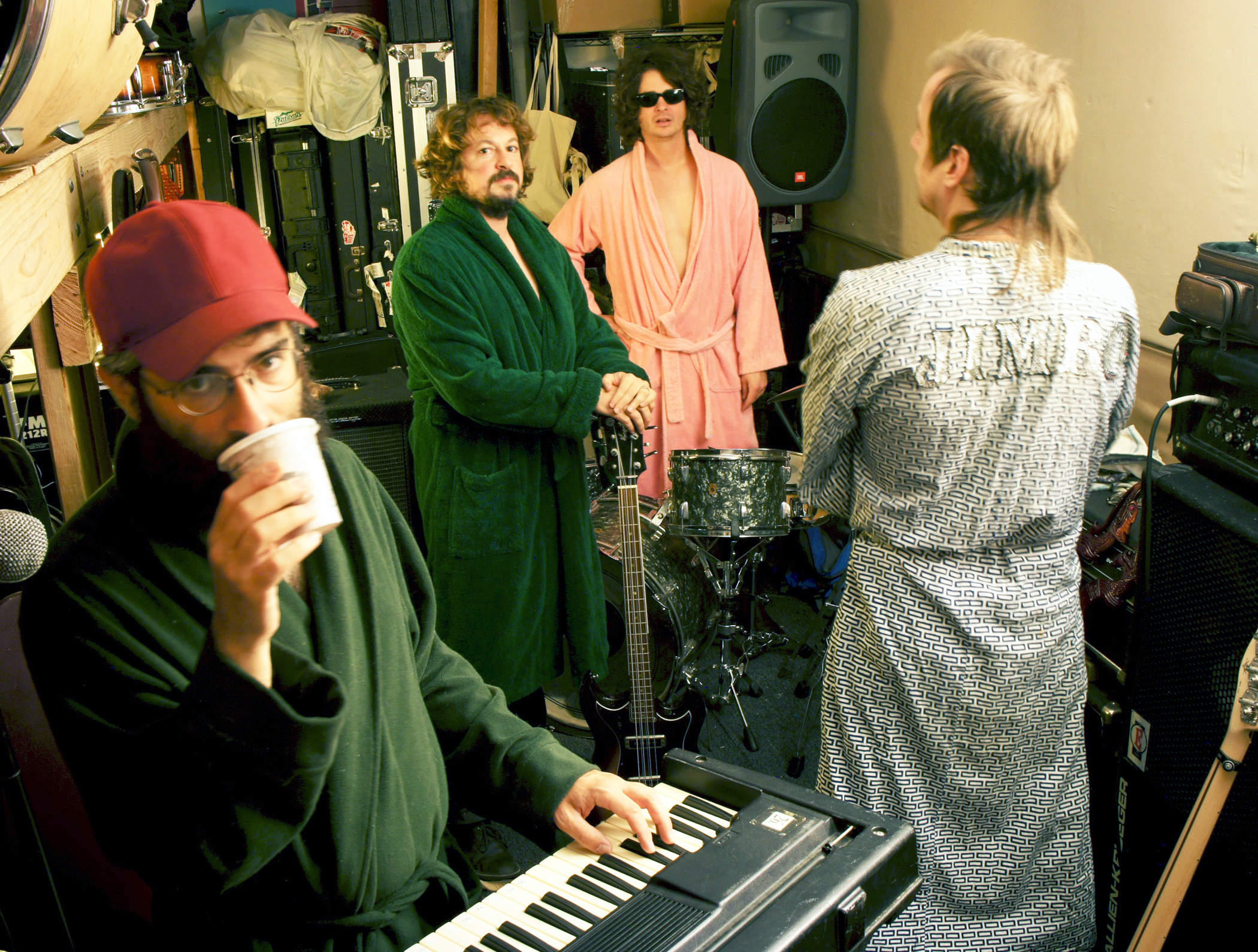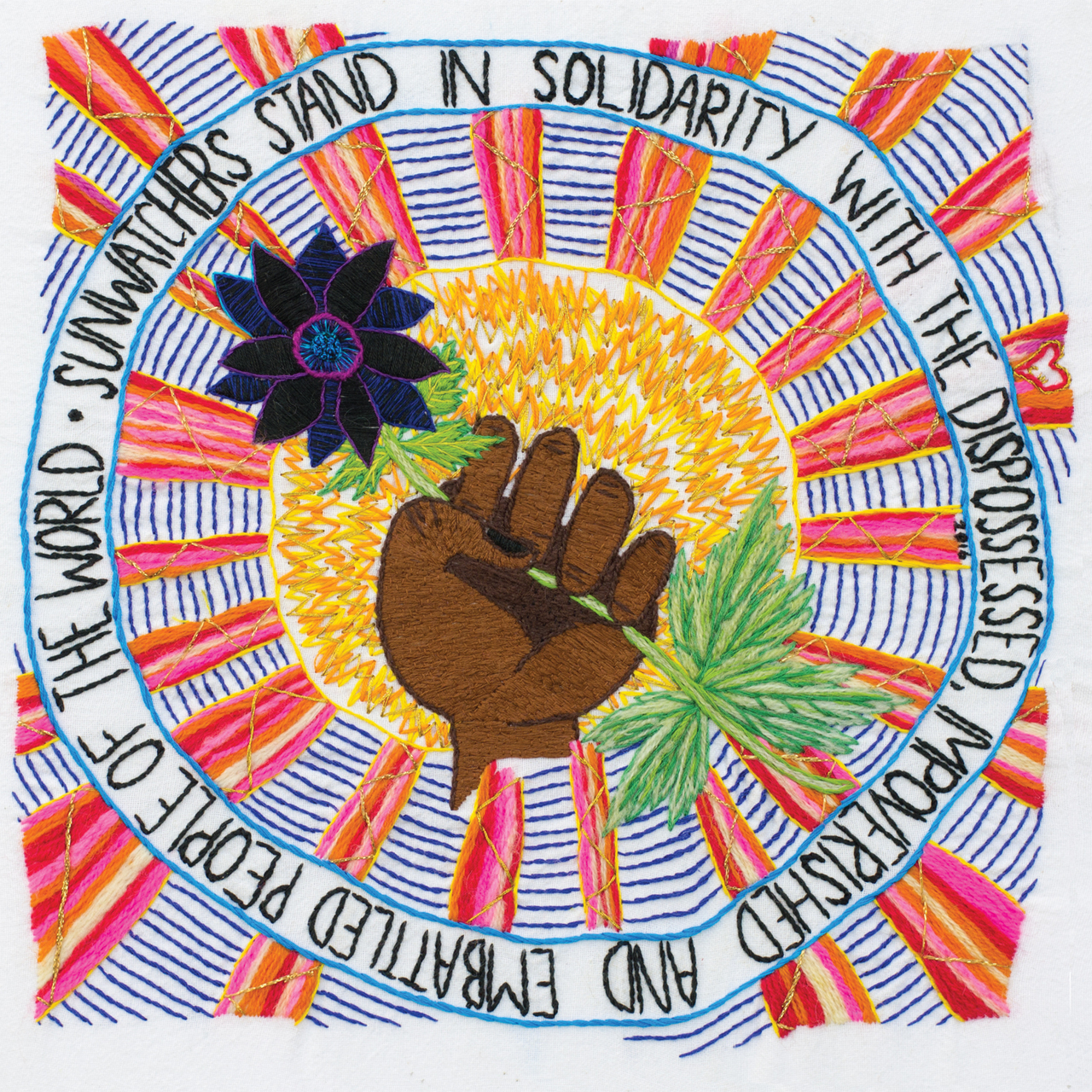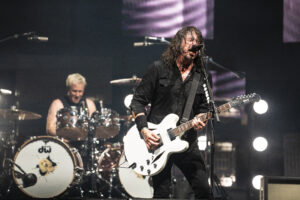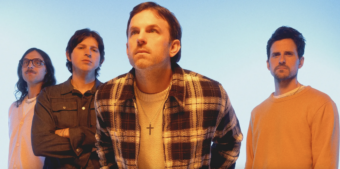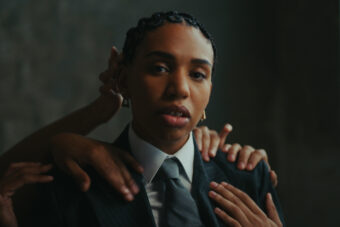To get a sense of Sunwatchers, take a look at a list of artists they’ve covered recently: desert-punk weirdos the Meat Puppets on one side; legendary improvisers like Alice Coltrane, Sonny & Linda Sharrock, and Arthur Doyle on the other. The music the Brooklyn quartet offers on II, its second LP, finds common ground in the twin squalls of psychedelic rock and free jazz, divergent genres that share a propensity for cathartic noise. More importantly, both are attuned to music’s ceremonial power, unabashedly using sound to seek a higher state, whether you’re communing with God or the only wafer on your tongue is soaked in lysergic acid.
Sunwatchers is Jeff Tobias on keyboards and alto and baritone sax; Jim McHugh on guitar and electric phin, a guitarlike instrument from Thailand; Jason Robira on drums and percussion; and Peter Kerlin on bass. On II, their largely instrumental jams encompass the sleazy and the spiritual, more interested in groove and melody than elaborate soloing. “Silent Boogie,” the first single, is the most obvious entry point for a Sunwatchers newcomer, with an anthemic surf sax line that will bounce around your head for days and neon guitar slime oozing from every available opening. There’s plenty of intense blowing from Tobias, but “Silent Boogie” is a giddy garage rocker at heart, like a particularly zonked-out entry from some forgotten Nuggets-style compilation. It’s a welcome reminder that experimental music needn’t always be dour and serious; sometimes, it’s more fun than anything else.
II contains several other similarly tight and propulsive tracks, but aside from “Silent Boogie,” the band is most compelling when it stretches out on “There Are Weapons You Can Bring to School” and “Flowers of the Water (For Lou),” the album’s two nearly 10-minute extended pieces. These expansive moments play like descendants of Ask the Ages, Sonny Sharrock’s 1991 masterpiece and swan song, which paired the pioneering free jazz guitarist with saxophonist Pharaoah Sanders on a set of avant-improv epics that are heavier than most rock songs. At their best, Sunwatchers pull a similar trick, finding an unlikely union between the explosive rhythmic force of punk and the nimble expressiveness of the jazz players they are. (Multiple members of Sunwatchers did time in Arthur Doyle’s ensemble before his death in 2014.) “There Are Weapons You Can Bring to School” is nearly symphonic in proportion, conjuring sweeping natural vistas, pushing and pulling between atmospheric passages and a soaring repeated motif before reaching a sublimely loud climax.
Despite its occasionally heady reference points, listeners don’t have to be fans of hardcore out-jazz to enjoy II; its rhythms are immediate and repetitious enough to attract fans of classic German art-rock of the ‘70s, especially on penultimate track “The Works,” whose utopian drive suggests Neu! circa “Isi” or “Hero.” The album also has a spirit of communal uplift that disregards genre, embodied by the motto embroidered on its cover art: “Sunwatchers stand in solidarity with the dispossessed, impoverished, and embattled people of the world.” Like Albert Ayler, from whom they take their name, Sunwatchers hold the earnest belief that there is beauty to be found in dissonance. II is abrasive, joyous music.
